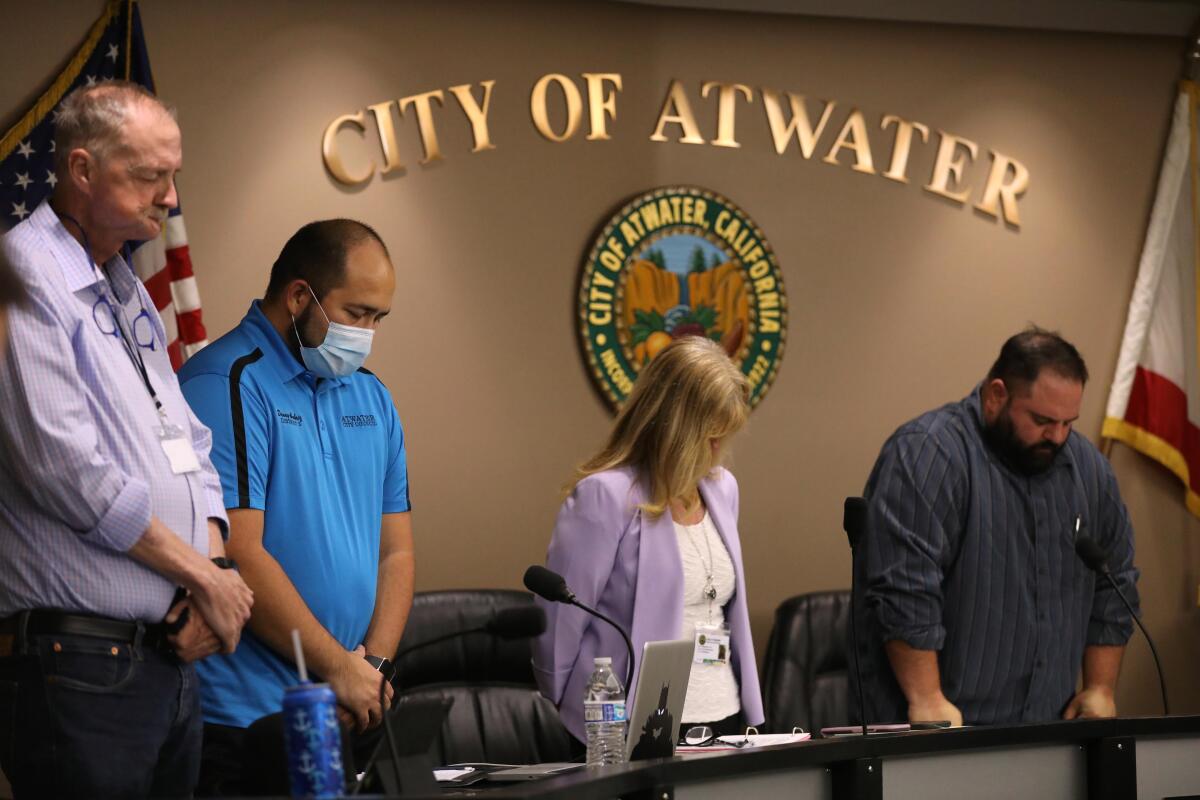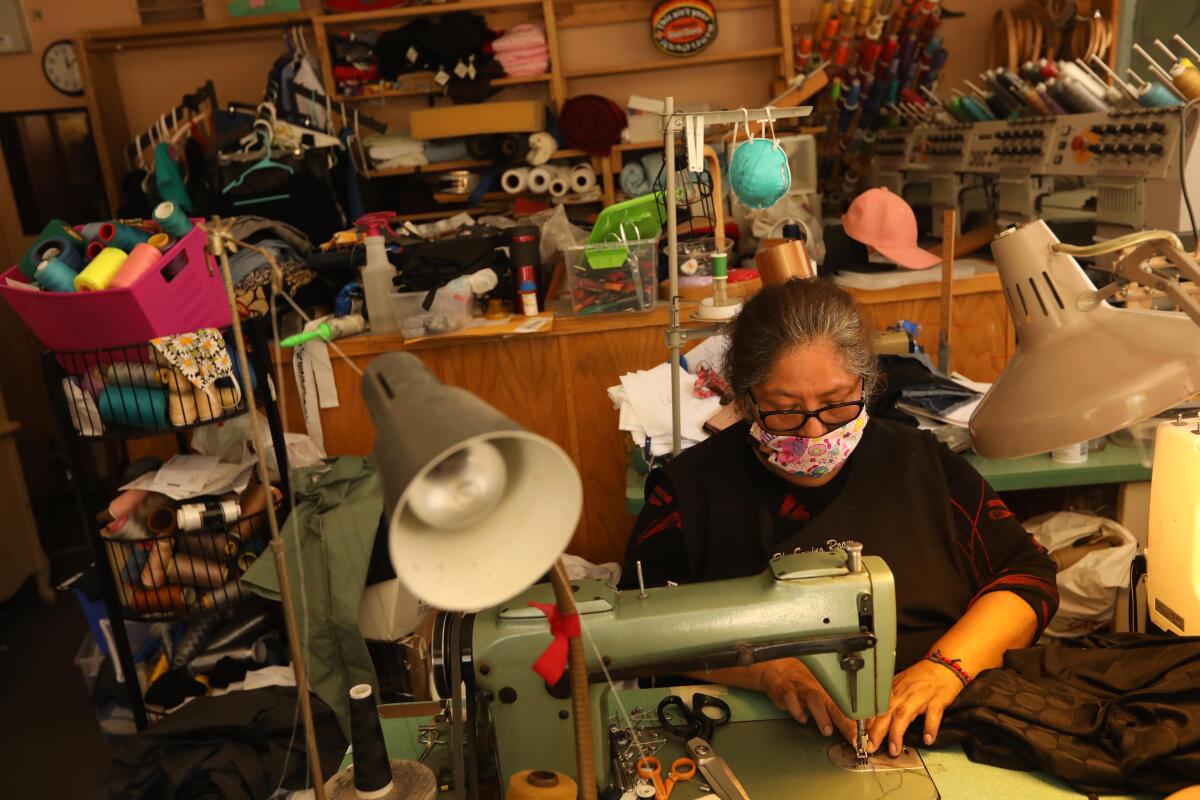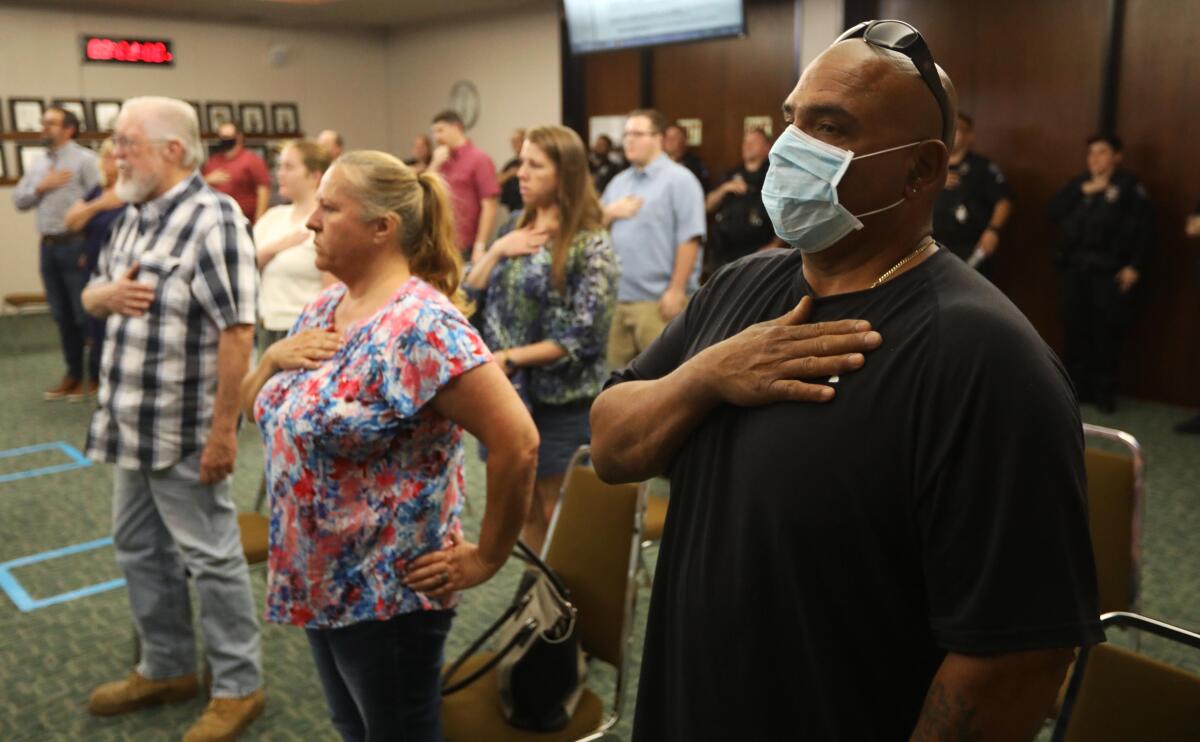A California sheriff mocked the state’s stay-at-home order. He changed his tune when COVID-19 cases surged

In mid-May, Merced County Sheriff Vernon Warnke had a lot to say about California’s stay-at-home orders to slow the spread of the coronavirus, none of it good.
He posted a defiant message to Facebook saying he refused to enforce the state’s orders because they meant “economic slaughter” and he believed government had no right to tell him or anyone else it was too risky to get a haircut or dental checkup.
“I truly believe that Governor Newsom’s motivation is to have the majority of the citizens (and illegal residents) dependant [sic] on governments assistance so he could maintain this control once this ‘pandemic’ is declared over,” Warnke wrote.
Two months later, with cases spiking and Merced County now on the state’s coronavirus watch list, the sheriff has changed his tune: “Wear your masks, do your social distancing, wash your hands. ... Please take it seriously.”
Cases have more than quadrupled over the last month in Merced County, which reported 1,702 cases on Wednesday. On June 6, the county had reported just 343 cases.
COVID-19 has killed 12 people in Merced County since the pandemic began.
Merced County, in the Central Valley, is one of 23 counties being monitored by the state for rising case counts and increased hospitalizations. Local public health officials say they worry that hospitals soon will be overwhelmed.
“The cases are rising coincident with opening businesses, the onset of the agricultural season, holidays, graduations, get-togethers and mixed messaging that existed from different sources,” Dr. Salvador Sandoval, the county health officer, told The Times in an email Monday.

Among concerns cited by the state are household and workplace infection clusters in Merced County among Latinos — who, along with Black people, have borne the brunt of the COVID-19 pandemic in the United States, becoming infected and dying at disproportionately high rates.
Merced County is 61% Latino, but that number swells during the agricultural season, Sandoval said. Overcrowded agricultural worker housing, poverty, insufficient availability of health information in Spanish, and employment in service jobs that require leaving home have contributed to high infection rates among Latinos, Sandoval said.
In the Merced County city of Atwater, residents have had to navigate varying levels of restrictions at the state, county and city levels — which, county health officials said, has led to confusion.
In mid-May, the City Council in Atwater declared it a “sanctuary city” for business in defiance of the state’s stay-at-home orders. City leaders said all businesses could reopen, regardless of state restrictions, without interference from local officials.
The politically potent “sanctuary city” label quickly landed Mayor Paul Creighton on “Fox & Friends,” where he called California’s lockdown orders “draconian,” and the “Glenn Beck Program.” Politicians and police chiefs from across the U.S. reached out, saying they also wanted to create sanctuaries.
On June 3, there were 27 confirmed cases of COVID-19 in Atwater. As of Monday, there were 209 cases in the city, Sandoval said.

Caleb Hampton, an Atwater resident who started a Change.org petition asking the City Council to pause reopening until it established safety guidelines for reopened businesses, said he and his wife were frustrated that the city has not changed course amid the spike in cases. He noted that the city’s website no longer has a banner display touting the sanctuary city resolution.
“To us, it seems like now that they’ve had their photo op and their Fox News appearance, they are just trying to sweep it under the rug,” he said.
Atwater City Manager Lori Waterman told the Times on Tuesday that the city had no plans to rescind the sanctuary city resolution.
“The city still stands behind the business owners’ rights to be socially responsible and maintain effective social distancing and health protocols as outlined by the governor and the health officer,” Waterman said in an email.
City officials, she said, are working with Merced County to create and implement a self-certification process in which businesses receive a “Ready2Open” certificate they can post in their windows if they meet certain criteria.
To get the certificate, she said, businesses will have to do the following: post signage about COVID-19 restrictions for customers, enforce social distancing, sanitize regularly, monitor the health of employees and have them go through safety training.
Atwater Mayor Pro Tem Brian Raymond said a rise in cases was to be expected, “with summer coming and the nature of our agricultural economy.” Protecting from the coronavirus and reopening businesses, he said, are not mutually exclusive.
“We can take the measure we all should be taking: wearing a mask, practicing good hygiene and social distancing, while still opening our economy,” Raymond said in an email. “Those that think it’s either or are treating our current situation like a political football and only taking a position that is advantageous to them and their particular political agenda.”
In a video message released last week, Warnke said he wanted to clarify that his previous, widely shared message about the pandemic “did not mean that this disease is not serious. It is very serious.”
Warnke, who also is the county coroner, highlighted two recent COVID-19 deaths: A 29-year-old man who “hemorrhaged to death” and a man in his early 40s who had a sudden onset of symptoms, then quickly died of a stroke.
Imploring people to wear a mask, Warnke noted that he keeps one “in my personal truck, my work truck, my cars” and at home “in case somebody comes over unexpectedly.”
The sheriff requested the closure of three parks before the Fourth of July weekend to prevent holiday gathering and said he would have deputies on scene to enforce closures.
“The government shouldn’t be making anybody be responsible for your health, but it’s gonna get to that point where so many people are getting deadly sick and dying that something’s going to have to be done,” Warnke said.
“I’m not an advocate for any law enforcement personnel to enforce the face masks, I’m just not. That’s why I’m counting on you to do your part.”
More to Read
Sign up for Essential California
The most important California stories and recommendations in your inbox every morning.
You may occasionally receive promotional content from the Los Angeles Times.











